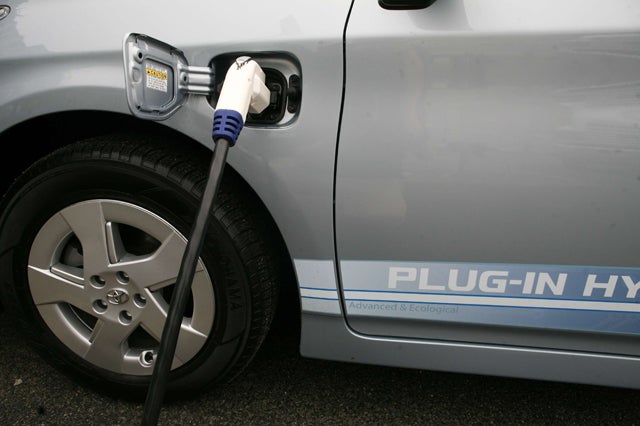In its push to get electric vehicles on the road, the Obama administration has partnered with a company in dire financial straits that is also under investigation by the Securities and Exchange Commission for insider trading.
San Francisco-based green technology company ECOtality received roughly $115 million in two separate Energy Department grants to build 14,000 electric vehicle charging stations in 18 cities. President Obama cited ECOtality in last year’s State of the Union address as a success story of his stimulus law. Ted Karner, president and CEO of ECOtality subsidiary eTec (now called ECOtality North America) watched from the crowd as the First Lady’s guest.
Energy Secretary Steven Chu boasted that his department was “working very closely [with eTec] to get EVs on the road.”
But the administration’s poster child for its electric vehicle project is riddled with financial and legal problems. According to ECOtality’s 10Q filing from the second quarter of this year, the SEC opened an investigation into allegations of insider trading.
On October 28, 2010, we and our ECOtality North America subsidiary, as well as certain individuals, received subpoenas from the SEC, pursuant to a formal Private Order of Investigation, in connection with a fact-finding inquiry as to trading in shares of our common stock from the period between August 1, 2008 and August 31, 2009.
The “certain individuals” under investigation are not public record, and the SEC said it could not provide the names of people involved in an ongoing investigation. ECOtality likewise declined to comment. But as the form notes, both ECOtality and its subsidiary – in addition to the unnamed individuals – are targets of the investigation.
In addition to its legal troubles, ECOtality’s financial health is tenuous. In the first six months of 2011, the company reported a net loss of more than $12 million, according to its 10Q. More than half of its income during that period came from its Energy Department grants.
ECOtality attributes its increasing losses (they increased by about $3 million from the previous year) to “the ramp up of activity and associated costs incurred under the DOE Contract in 2011.” The electric vehicle project for which ECOtality received federal money is behind schedule, according to Karner. As of last month, only about 3,000 electric vehicle charging units had been installed. Karner said the company would be requesting an extension of the program to accommodate the slow pace of production.
The extension of the company’s work on the EV project raises concerns about its financial health, given the large costs apparently associated with the project and its lack of other sources of income.
The wisdom of large government expenditures on electric vehicles is itself a dubious policy, as Heritage’s Nick Loris pointed out:
It should not be the focus of the Department of Energy to work to get EVs on the road. The world petroleum market is a multi-trillion one. That should be enough incentive for innovators, venture capitalists and entrepreneurs to get EVs on the road because if they make economic sense they’ll capture part of that market share and make billions. The economic reality is that PHEVs are not ready for primetime, and the best indicator for when they will be is when the government stops using taxpayer dollars to subsidize their production and consumption.
































14 Replies to “Energy Department-Backed Company Under SEC Investigation”